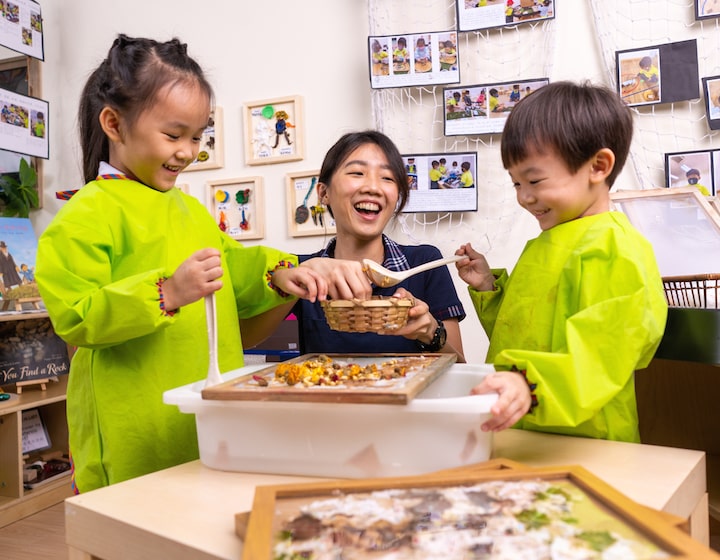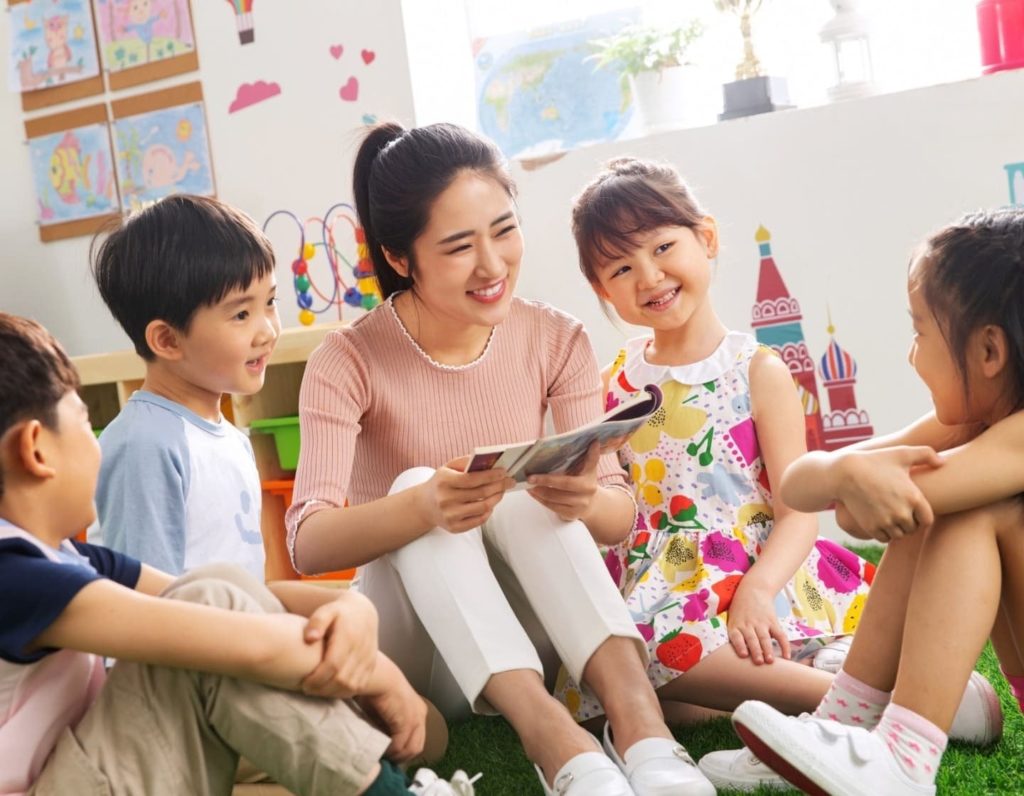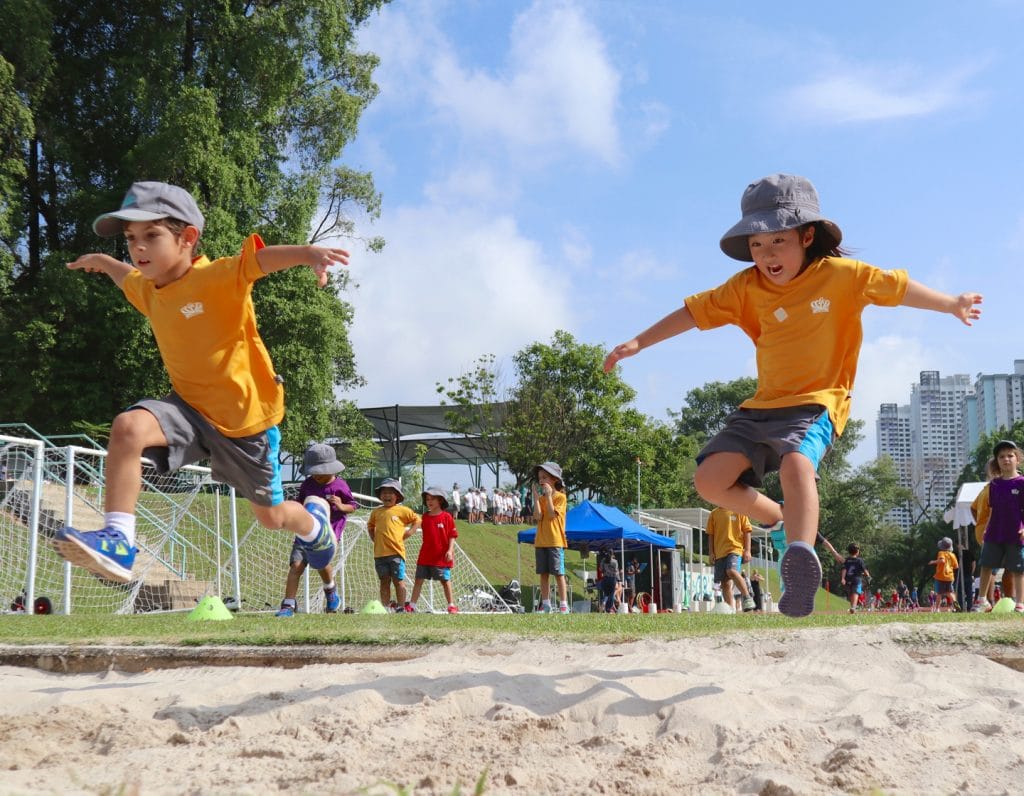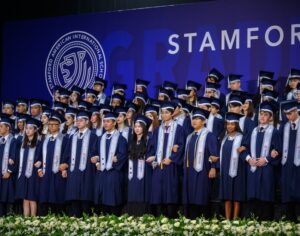
Looking for a school that prioritizes an inquiry-based approach to learning? We break down everything you need to know about the International Primary Curriculum, plus shortlist a list of IPC schools in Singapore
Want to know more about the International Primary Curriculum (IPC) and its benefits? We explain the meaning of the IPC curriculum and how it can benefit your child! Plus keep reading for a list of several IPC schools in Singapore for your consideration. Keep scrolling to weigh all your options!
Read more: Lower Cost International Schools with School Fees Under $28,000
What is the meaning of IPC?
The International Primary Curriculum is a comprehensive curriculum based on the English National Curriculum adapted for international schools, with reference to the IB inquiry-based approach to learning. The IPC is usually implemented for 5 to 11-year-olds, with a creative, thematic approach to teaching and encourages students to research and ask questions. Students are usually assessed in subjects such as Art, Geography, History, Computing, Music, Physical Education, Science, Technology and International.
What’s different about the IPC curriculum?
The thoughtfully designed IPC has many benefits, including comprehensive learning and parental involvement. The IPC curriculum is flexible, and can be adapted to your child’s level of understanding and interests. Additionally, it encourages collaboration and reflection and can be integrated with other curricula to ensure your child’s learning needs are met.
Where to find IPC schools in Singapore
Considering enrolling your child in an IPC school in Singapore? Keep scrolling to find out how the international schools below incorporate this curriculum for their students to get the best performance out of each child.
Middleton International School
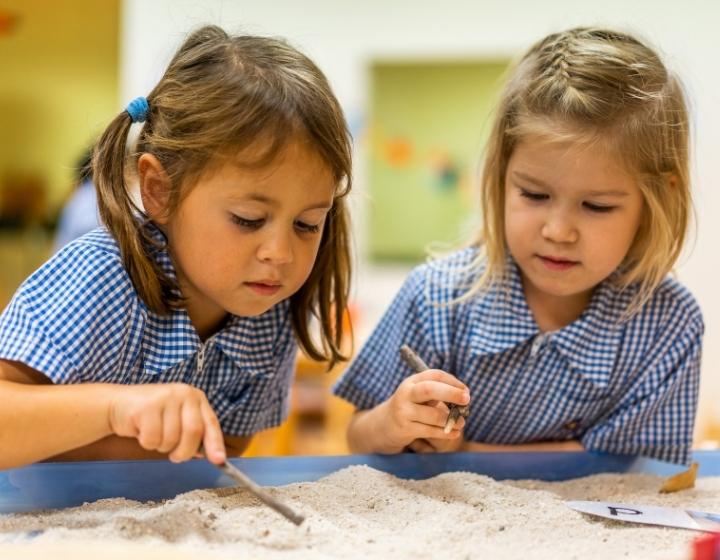
From Grades 1 to 5 (ages 7 to 11), Middleton International School uses the inquiry-based International Primary Curriculum (IPC), aligned with the UK National Curriculum for English and the globally recognised Singapore Maths. At the start of each unit, there is an Entry Point activity to introduce and capture the interests of the children so that they are motivated and eager to learn. Throughout the learning process, the teachers will plan learning engagements based on students’ interests and questions to help them develop their understanding across different curriculum areas. Learners are engaged in a Research, Record and Reflect loop designed to extend knowledge, build skills, deepen understanding and develop metacognitive thinking. They use various methods to do research and are empowered to ask questions, find answers, and initiate their own learning. At the end of the unit, students will complete an Exit Point project. Formative assessments are regularly used as a reflective tool to help scaffold learning. The teachers use strategies and tools such as regular observations, documentation and analyses of learning journeys through discussions, projects, classroom work, and standardised tests to gather information about students’ learning. Learning is an active process where learners co-construct the units of inquiry together with their teachers and are enthusiastic about learning. In Grades 6 to 8, students will continue with the International Middle Years Curriculum (IMYC), designed to link the in-depth knowledge, skills, and understanding picked up in the IPC to the IGCSE subjects undertaken in Grades 9 and 10 and the International A-Levels subjects in Grade 11 and 12.
![]() Middleton International School, www.middleton.edu.sg
Middleton International School, www.middleton.edu.sg
Tampines Campus: 2 Tampines Street 92, Singapore 528889, Tel: (+65) 6259 3877
West Coast Campus: 20 Harbour Drive, Level 1-3, Singapore 117612, Tel: (+65) 6916 0740
Astor International School
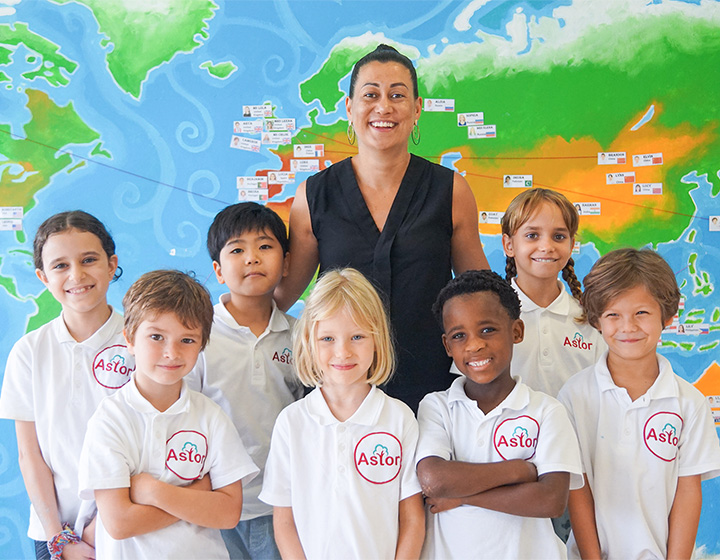
Astor International School offers a low teacher-to-student ratio (1:18) which allows individual attention and a more hands-on experience. The IPC curriculum at Astor International School covers subjects such as Science, History, Geography, Music, Drama and more with IPC units of learning. Through enquiry-based teaching methods and approaches, students aged 5 to 12 have the opportunity to develop their skills and knowledge while becoming lifelong learners with open-mindedness towards the perspectives of others. Each unit starts with an Entry point aimed to get students excited about the topic and find out what students already know about it. Then students will build their knowledge with the help of interactive hands-on activities, research, record and reflection. Each unit ends with an Exit point where students will present their project or go on a field trip to deepen their knowledge about the topic. Astor implements a range of enquiry-based activities into their curriculum that cater to all types of learners and give all students an opportunity to go deep into a topic. Exciting topics make learning engaging and relevant to students. Astor International School complements the IPC curriculum with Singapore Maths and British English, which allows it to support high academic standards while making learning fun and enjoyable. The school practices formative and summative assessments, which means assessments are done regularly to help teachers understand the level of skills and knowledge of the students to make teaching more relevant.
![]() Summer Promotion: 50% off admission fee applicable to the first school fee invoice! Available until 31 July 2023.
Summer Promotion: 50% off admission fee applicable to the first school fee invoice! Available until 31 July 2023.
![]() Astor International School, 1 Kay Siang Road, #05-01/02, Singapore 248922, Tel: (+65) 69745700, www.astor.edu.sg
Astor International School, 1 Kay Siang Road, #05-01/02, Singapore 248922, Tel: (+65) 69745700, www.astor.edu.sg
DIMENSIONS International College
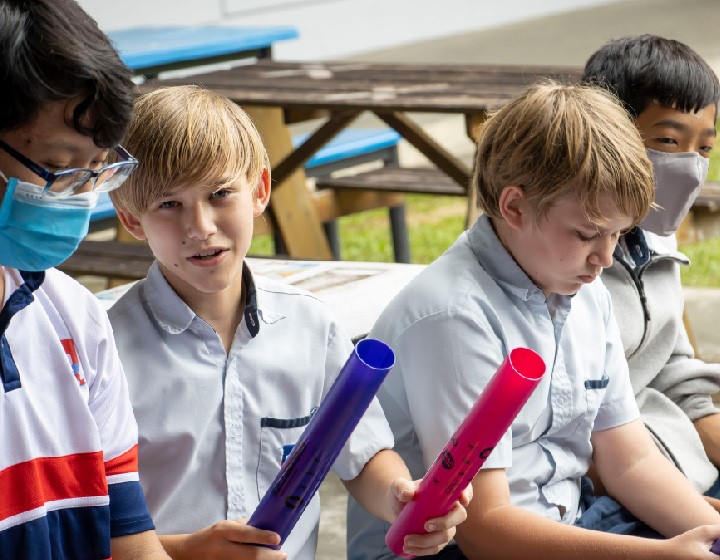
DIMENSIONS offers an IPC curriculum that gives students an early start in future-ready skills like entrepreneurship and problem-solving skills that address global issues so they can be empathetic and involved citizens of the world. For example, students get to develop and pitch business ideas to a panel of judges in the annual Entrepreneurship Day. The school’s Sustainability Fair lets students exercise their imagination and creativity and execute campaigns that promote sustainability. Children at DIMENSIONS get to learn experientially through play. Lessons are gamified for concepts to sink in easily and often take place in naturalistic outdoor environments. Students also get to hone both their leadership skills and their ability to work in teams through regular group projects with a rotating leader format. With additive manufacturing facilities, students get to have hands-on innovation experience as they create objects of their own design from scratch, which cultivates a spirit of inventive thinking. Teachers make sure to value, uplift and celebrate every child and motivate them to be the best version of themselves in everything they do. To honour this direction, they are assessed through a holistic mix of written and verbal tests or assignments, in-class participation, and group project work.
![]() DIMENSIONS International College, 51 Cuppage Rd, #02-01, Singapore 229469, course.dimensions.edu.sg
DIMENSIONS International College, 51 Cuppage Rd, #02-01, Singapore 229469, course.dimensions.edu.sg
The Grange Institution
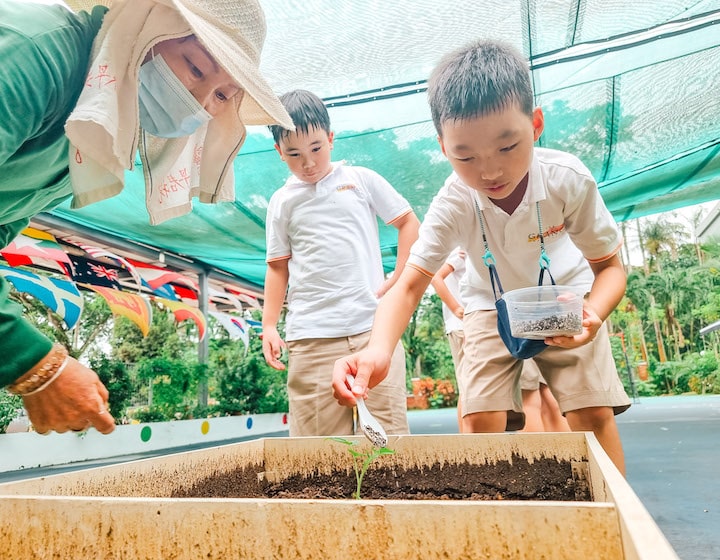
The IPC curriculum at The Grange engages learners from Years 1 through 6 in different thematic units in the IPC curriculum. Their sister preschool, conveniently located in the same location, follows the International Early Years Curriculum (IEYC), the Early Years counterpart of the IPC. IPC at The Grange integrates multiple subject areas, allowing learners to understand how subjects such as Art, Geography, Society, Technology and Language are both independent and interdependent. This allows them to make connections across different subjects from multiple perspectives. The Grange is one of the few schools in Singapore that has all specialist subjects built into the curriculum, resulting in a genuinely holistic learning experience at no additional cost! What distinguishes IPC at The Grange is its interwoven academic rigour and structure alongside the Cambridge Primary Curriculum, as well as the study of authentic real-life phenomena via their Cre8tors-in-Action® outcomes. This makes learning more personal for students, encouraging them to make guided decisions and take ownership of their learning. The Grange’s award-winning Green Granger initiative also incorporates nature-inspired learning into its thematic subjects. Through Phenomenon-based inspired learning, students develop a strong awareness of sustainability and current global challenges such as climate change. Make sure to register for the upcoming Open House on 18 August 2023!
![]() The Grange Institution, 449 Yio Chu Kang Road, Singapore 805946, www.thegrange.edu.sg
The Grange Institution, 449 Yio Chu Kang Road, Singapore 805946, www.thegrange.edu.sg
Holland International School
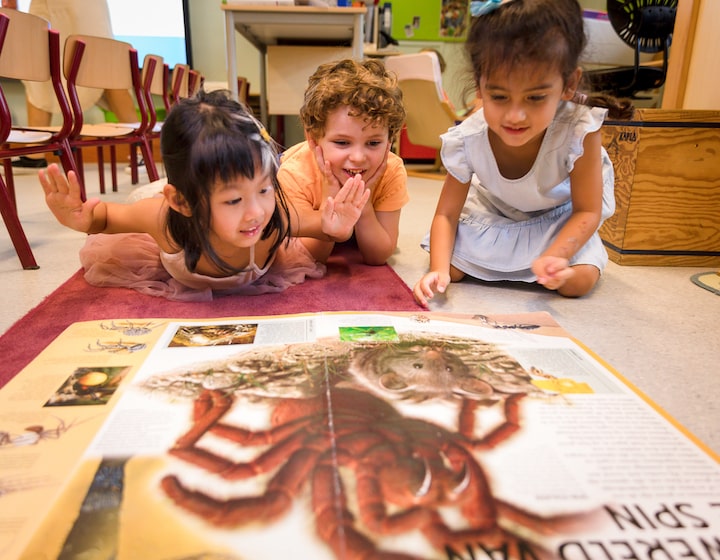
Established for over 100 years, Holland International School is more than just academics. The school’s holistic approach nurtures students to become well-rounded future leaders through shared ownership, critical thinking and cooperative learning. The IPC framework is introduced right from the preschool level, and play-based learning is believed to be the most effective approach to achieving this goal. This philosophy is particularly evident in the preschool and early primary years, where the school provides a stimulating and immersive learning environment through diverse IEYC groups. At their primary school, students are encouraged to conduct research and utilise credible sources during IPC lessons. They are empowered to independently navigate research, equipping them with the necessary skills to seek and utilise appropriate information effectively. Holland International School offers two streams; a Dutch and an English stream. In the Dutch Stream, students receive instruction in the Dutch curriculum for numeracy and literacy, along with an hour of English as a second language (EAL). Conversely, the English National Curriculum is followed in the English Stream, completed with Dutch language lessons. The IPC serves as the foundation for the collective endeavour to cultivate global citizens with a strong sense of identity. The school embraces cooperative learning approaches when delivering both the IEYC/IPC curricula and the Dutch and English curricula. Holland International School aligns the IPC curriculum with the school’s vision by focusing on specific assessment goals. Teachers assess the children’s progress by observing their engagement during activities. Teachers then guide them in advancing to higher levels by using the IPC rubrics as a framework for growth.
![]() Enjoy an exclusive $540 registration fee waiver until the end of 2023 by using the code HIS_Sassymama540
Enjoy an exclusive $540 registration fee waiver until the end of 2023 by using the code HIS_Sassymama540
![]() Holland International School, 65 Bukit Tinggi Road, Singapore 289757, www.hollandinternationalschool.sg
Holland International School, 65 Bukit Tinggi Road, Singapore 289757, www.hollandinternationalschool.sg
St. Joseph’s Institution International Elementary School
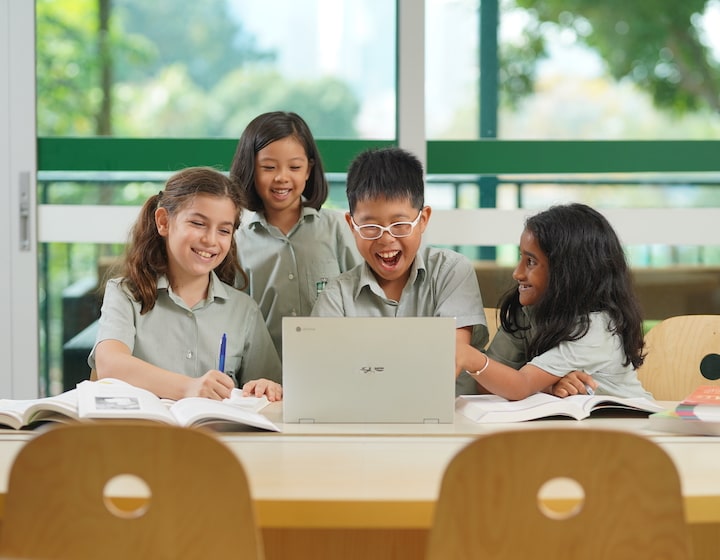
At SJI International Elementary School, students from Prep 1 follow the Early Years Programme. From Prep 2 to Grade 5, students follow the IPC curriculum. Students in Grade 6 slowly progress from the IPC (which encourages young learners to challenge ideas, be reflective and work collaboratively) to follow the International Middle Years Curriculum (IMYC). In 2023, the school implemented the IMYC that Grade 6 students slowly transitioned to from the IPC. The units in the IMYC are specifically designed for students aged 11-14, delivering transformational knowledge, skills and understanding and links them to this conceptual theme. The school also uses a range of assessment tools, from standardised testing, observations and the Pupil Attitude to Self and School (PASS) survey to end-of-unit and progress reviews – all of which allow students to confidently lead and share their learning whilst also being empowered to demonstrate their growing knowledge, skills and understanding. Also following the IPC, will be the SJI International Elementary School Bilingual Programme launching in January 2024. The programme is designed for native and non-native speakers and will equip students to become equally proficient in English and Chinese. The Bilingual Programme utilises globally recognised curricula including IPC, Singapore Math and the Chinese National Curriculum. The programme will encourage students to develop transferable skills such as intercultural competence, critical thinking and analytical skills in meaningful ways through exposure to wide-ranging ideas and cultural perspectives.
![]() St. Joseph’s Institution International Elementary School, 490 Thomson Road, Singapore 298191, www.sji-international.com.sg
St. Joseph’s Institution International Elementary School, 490 Thomson Road, Singapore 298191, www.sji-international.com.sg
Sir Manasseh Meyer International School (SMMIS)
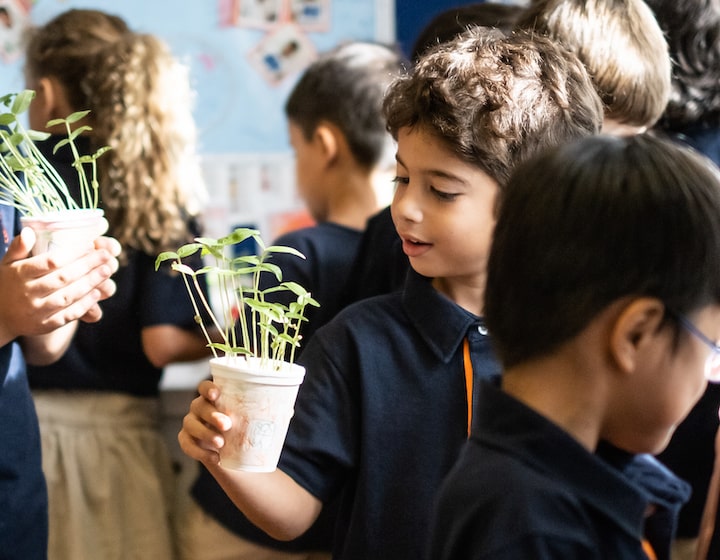
SMMIS is committed to providing the highest quality curriculum to its students. From Kindergarten 2 to Grade 5, SMMIS teaches through the International Primary Curriculum and continues with the International Middle Years Programme (IMYC) before offering the Cambridge IGCSE qualifications in Grades 9 and 10. The IPC and IMYC are both incredibly versatile and adaptable curricula, which SMMIS blends with British National Curriculum Literacy and Singapore Mathematics. IPC covers the sciences, social studies, history and geography, while centred on an engaging overall theme so that students learn these subjects and related skills through building strong connections between disciplines. SMMIS connects and integrates literacy, numeracy, art, music, technology and PE within each IPC unit. Students develop not only academic knowledge and understanding but also develop their character through the eight integrated IPC personal goals: Enquiry, Resilience, Morality, Communication, Thoughtfulness, Cooperation, Respect and Adaptability. Each grade covers four themed IPC units per academic year, such as ‘Saving the World’ in which they explore the world’s rainforests and deforestation. At SMMIS, students also enjoy state-of-the-art facilities, expansive after-school co-curricular activities and competitive sports.
![]() Sir Manasseh Meyer International School, 3 Jalan Ulu Sembawang, Singapore 758932, Tel: (+65) 6331 4633, www.smmis.edu.sg
Sir Manasseh Meyer International School, 3 Jalan Ulu Sembawang, Singapore 758932, Tel: (+65) 6331 4633, www.smmis.edu.sg
Other IPC schools in Singapore that offer the International Primary Curriculum
– The Winstedt School
– Dynamics International School
– Invictus International School
– Knightsbridge House International School (Sentosa)
– Overseas Family School
Want to know more about education in Singapore? We’ve got you covered with these informative reads.






 View All
View All




 View All
View All









 View All
View All


